Ontario’s labour market is unpredictable — as are student pathways into and through it. Many graduates of Ontario postsecondary education programs find themselves working in different careers or sectors than the one they planned on when they began their journey. While HEQCO can’t predict every job-specific skill that students will require after graduation, we can say — with certainty — that today’s employers demand transferable skills such as literacy, numeracy and critical thinking: skills that also form the basis for effective lifelong learning.
Employer surveys consistently show a demand for other core skills, such as teamwork, communications and problem solving. They are skills that students want to improve as part of their postsecondary education and that employers look for when hiring.
“What are effective ways of teaching essential skills?”
Building on our previous work on assessing and measuring skills, HEQCO partnered with eight postsecondary institutions in Ontario to form a new Skills Consortium. The goal of this project is to evaluate programs of interventions related to acquiring, developing and articulating transferable skills.
All of the projects seek to cultivate one or more in-demand, transferable skills such as numeracy, leadership, time management and civic engagement. The focus is on innovative education interventions that help students acquire, hone or articulate these types of skills.
Download the interim report here.
More details about the specific projects and the institutions involved can be found below. All project summaries are written by the participating institution. Special thanks to Lena Balata, Nia Spooner, Sophie Lanthier, Spencer Gordon, Hagar Effah and Alexandra MacFarlane for their contributions.

The Global Skills Digital Badge:
Innovative Interventions to Improve Global Skills for Adult Learners
This project evaluates the Global Skills Digital Badge (GSDB), a co-curricular initiative at Centennial College which aims to prepare students more effectively for the global workplace. Specifically, the focus is on exploring “Intercultural Intelligence” as a key global employability skill.
Key research questions:
- To what extent does completing a ‘Building Intercultural Intelligence’ workshop develop students’ ‘Intercultural Intelligence’ skills for employment in diverse industries?
- To what extent does completing a workshop and experiential learning component develop students’ ‘Intercultural Intelligence’ skills for employment in diverse industries?
- To what extent does completing a workshop, experiential learning component and reflection develop students’ ‘Intercultural Intelligence’ skills for employment in diverse industries?
To learn more about this project, contact the Primary Investigator: Dr. Silvia D’Addario sdaddario@centennialcollege.ca

The Supportive Care Assistant Program:
Skill Acquisition and Work-integrated Learning within a Healthcare-based Microcertification
This project examines whether a healthcare-based microcertification program that incorporates work-integrated learning can be an effective means of skill acquisition. The study will focus specifically on the development of communication, teamwork, time management and cultural sensitivity.
Key research questions:
- How do student self-assessments of core program skills and competencies align with or compare to objective ratings provided by faculty and employers?
- To what degree does WIL experience, following class-based instruction, improve transferable skill acquisition?
- Is WIL more effective for the acquisition of particular program skills and competencies than others?
To learn more about this project, contact the Primary Investigator: Robert Downie rdownie@fanshawec.ca
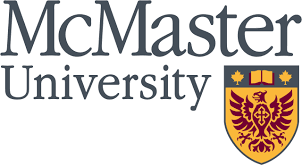
Numbers for Life:
Measuring Learning Gains and Exploring the Wider Adoption of Numeracy Curricula
This project will evaluate the effectiveness of McMaster’s “Numbers for Life” course as a means of teaching numeracy, critical thinking and problem solving. The project is led by McMaster University and incorporates partnerships with University of Toronto Mississauga and George Brown College.
Key research questions:
- To what extent does the “Numbers for Life” course develop students’ numeracy skills?
- To what extent are numeracy skills retained a year after the course is complete?
- How do students’ academic backgrounds, interests and experiences affect the development of their numeracy skills?
- How does numeracy skill development differ between the two student cohorts tested?
To learn more about this project, contact the Primary Investigator: Miroslav Lovric lovric@mcmaster.ca
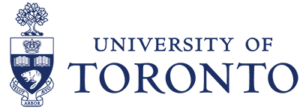
The New Respect Cultural Safety Course:
Helping Students Work with Indigenous Peoples to Uphold Reconciliation
This project will examine the ‘New Respect Cultural Safety’ course (NRCS) offered to students in Nursing, Social Work and Medicine at the University of Toronto. The main objectives of NRCS are to address systemic racism against Indigenous peoples by exploring the three Ps — power, privilege and positionality — while asking participants to self-reflect on how the three Ps play a role in their own lives. Participants in the program are expected to enhance three key skills: culturally sensitive communication; effective collaboration; and community engagement.
Key research questions:
- How have students’ knowledge, attitudes and skills related to effective engagement with Indigenous peoples changed following completion of NRCS?
- To what extent are changes in knowledge, attitudes and skills retained by participants three, six and nine months after completion of NRCS?
- What impact do profession-specific modules have on the internalizing or use of Indigenous cultural safety training for nursing, social work, medicine and/or educators (from kindergarten to postsecondary)?
To learn more about this project, contact the Primary Investigator: Dr. Angela Mashford-Pringle Angela.Mashford.Pringle@utoronto.ca
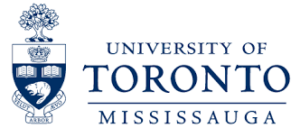
The Social Innovation Program:
Evaluating Community Based Learning Programs for Transferable Skills
This project will examine the Social Innovation Program at the University of Toronto Mississauga. The focus is on whether the program can improve the teamwork, problem solving, oral communication and civic engagement skills of the students who participate.
Key research questions:
- To what extent does participating in a co-curricular civic engagement program affect student skill acquisition?
- Does participation in co-curricular civic engagement programming increase student competency in the aforementioned domains, as measured by changes in self, peer and observer assessment using VALUE rubrics?
- How do student self-assessments of skills align or compare to ratings provided by peers and observers?
- What lessons can be learned to either improve the program or transfer effective elements of the program to other contexts?
- Does the Social Innovation Program work better for certain groups of students?
To learn more about this project, contact the Primary Investigator: Jonathan Davis jonathan.davis@utoronto.ca
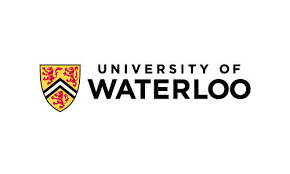
Reversing Un(der)employment:
A Novel Work-integrated Learning Skills Development Intervention
This project will focus on a work-integrated learning (WIL)-based intervention called WE Accelerate which is offered to co-op students at the University of Waterloo. Specifically, it will assess participants’ acquisition of two transferable skills: teamwork and problem solving.
Key research questions:
- How is participation in WE Accelerate associated with unemployment in a subsequent co-op work term?
- How is participation in WE Accelerate associated with underemployment in a subsequent co-op work term?
- What is the role of transferrable skill development in understanding the outcomes (i.e., unemployment and underemployment) of WE Accelerate?
- How do students’ demographic backgrounds related to the dynamics between WE Accelerate and un(der)employment in a subsequent co-op work term?
To learn more about this project, contact the Primary Investigator: Norah McRae norah.mcrae@uwaterloo.ca
A two-year longitudinal study on the WE Accelerate program has been published in Studies in Higher Education illustrating how this pandemic-driven innovation helps first work-term students gain critical skills and experience. Click here to read the article (subscription required).
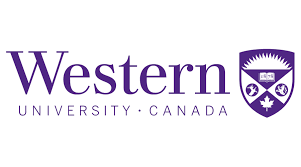
The Power Skills Self-assessment and Career Preparation:
Empowering Doctoral Students to ‘Own Their Future’
This project will investigate whether completion of the Power Skills Self-Assessment improves doctoral students’ abilities to recognize and articulate their skills. It focuses on the skills of communication and relationship building; leadership; thriving; and intercultural and social fluency.
Key research questions:
- Does completion of the self-assessment and intervention workshops change students’ perceptions of their skillset and skill proficiency — and if so, how?
- Does participation in the program intervention improve students’ abilities to articulate their competencies, skills and experiences?
- Based on the study results, what is the best way to transfer the program and content to other institutions, fostering a community of sharing?
To learn more about this project, contact the Primary Investigator: Lorraine Davies ldavies@uwo.ca
